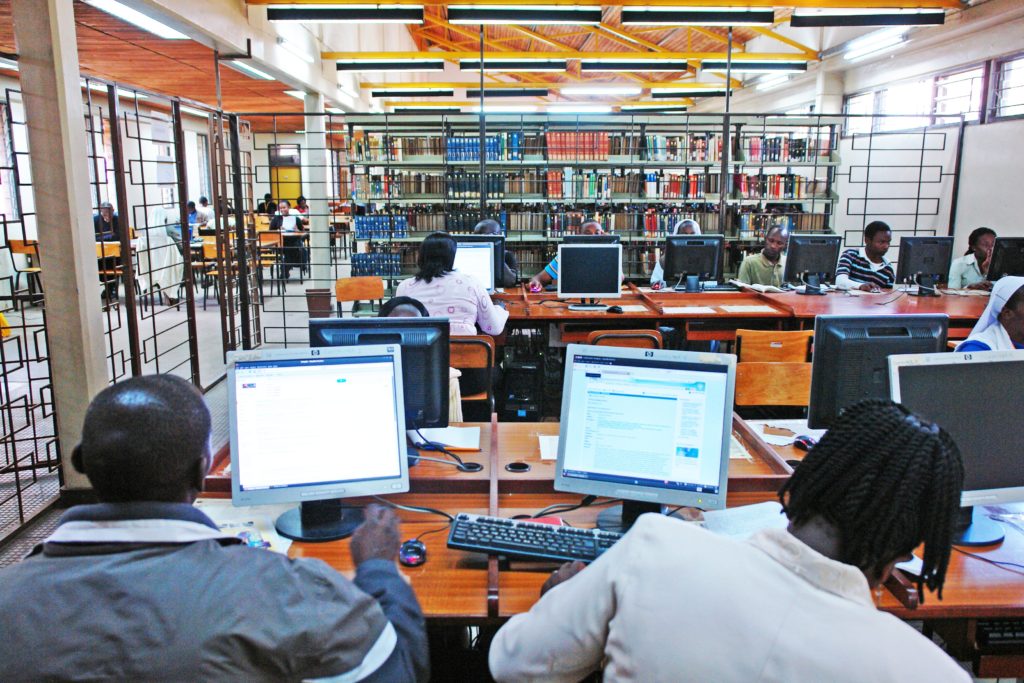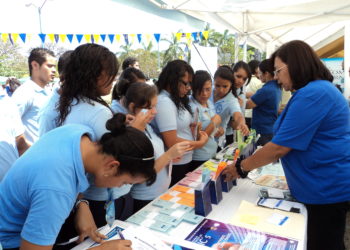Over the past few years there have been encouraging signs of increased awareness about the need for equity in research – for example, looking at broadening geographical participation and increasing opportunities for groups of people who have often been marginalized.
As Scholarly Kitchen posts regularly share, the past few years have also seen significant changes in research and publishing worldwide. These changes have come as a result of changing researchers’ and research funders’ needs and preferences, the expectations of potential research users, and the technologies that underpin the research and publishing process.

At INASP [where I work as a Communications Specialist], increasing equity in research systems – globally and on a more local basis – is a key principle of our work. And an important part of strengthening research systems to enable equity is access to information. As such, we have been closely following trends in research and publishing over many years to guide and inform our work with library consortia in the Global South and with international scholarly publishers. Over the past year, as we have moved away from involvement in library consortia’s negotiations with publishers, we have been thinking again about the wider trends and considering how best we can help improve research equity in a changing research and publishing landscape.
The global research and publishing trends are widely known to readers of The Scholarly Kitchen – trends such as the growth in open access publishing; changes in the economy of access and publishing; greater access to publishing technologies; and improvements in search and discovery technologies.
What are perhaps less widely known in the wider sector are the shifts within the systems for communicating research and knowledge in the Global South. I will share a few of the big themes here:
Growth in Southern research systems
Recent years have seen a steady increase in the number of universities and student enrollments in many Southern countries, and growth in their research systems. For some years, many publishers have been participating in access initiatives via partners such as INASP and Research4Life. Many publishers have also been exploring new business in low-income and lower-middle-income countries in Africa, Asia and Latin America as Northern markets become increasingly saturated.
Improvements in Southern research journals
Although greater prestige in general is still attached to Northern-published journals, improvements in the visibility, quality and credibility of Southern-published journals mean it is now easier to find, evaluate and make use of quality research published by Southern individuals and institutions.
The Journal Publishing Practices and Standards (JPPS) assessment framework that African Journals Online and INASP launched towards the end of 2017 has been well-received and is one of the initiatives that is helping drive improvements in journal quality and perceived credibility. The criteria on the Think. Check. Submit. checklist for identifying trustworthy journals is noticeably neutral about geography.
Improvements in digital systems and connectivity for Southern research and higher education
Many researchers and users still experience challenges getting online. However, the proliferation of 3G and 4G mobile data, major improvements to the speed and reliability of broadband systems for universities and research institutes and the digital services that can be provided via these broadband systems (from data sharing to collaborative tools) have significantly altered the information ecosystem.
Increased demand for evidence by Southern policymakers and practitioners
As knowledge ecosystems have grown and developed in many Southern countries, and as funders and governments have placed a greater premium on evidence to guide decision making, there has been a growth in demand for access to information from a wider range of institutions and individuals, including those in government, think tanks and NGOs.
INASP’s response
These shifts, what INASP and our partners have learned over the last five years, and changes in the funding landscape – along with an external study we commissioned to look at the evidence — suggest the need for new approaches to enabling access in order for our work to have the greatest impact on research equity.
Access to information will continue to be an important part of INASP’s work, but the way in which we meet those needs will change. In particular, we will be re-focusing and re-framing our information access work towards:
- Supporting ‘researchers’ wherever they are – we recognize that researchers are not just in academia and that researchers in government, NGOs, health care, think tanks, etc. often miss out on access to research materials or are unaware of the materials they could access.
- Supporting ‘research’ wherever it is – we recognize that research happens – and is published and shared – in the Global North and South. We also recognize the importance not just of academic research but also high-quality ‘grey literature’, and of platforms beyond journals.
INASP is now exploring options for the future of this area of work – looking at how INASP can best support the needs of Southern researchers in order to address inequity in access between South and North. We will particularly be focusing on:
- Increasing awareness and researchers’ skills
- Increasing availability of a broader range of research
- Strengthening national information access systems
We will be sharing more concrete ideas and opportunities for collaboration as they emerge.
How the global scholarly publishing community can help
Large shifts are occurring across research and publishing – with potentially large impacts in tackling research inequity. But, along the way there are many potential smaller shifts that can help increase awareness of the challenges and might help ensure that innovation is done in a way that facilitates global needs.
At the recent SSP pre-conference before the Academic Publishing in Europe meeting in Berlin, my colleague Anne Powell shared some advice on how scholarly publishers and others can help tackle research inequity:
- Do business responsibly – Several years ago, INASP produced our Principles for Responsible Engagement, a simple guide for publishers in dealing with libraries in the Global South. At their heart, these principles are about recognizing and responding to the situations libraries are faced with.
- Recognize that contexts vary – Building on the principles in the first point, it’s important to recognize that research systems vary around the world – in their focus, outputs, key players and who sets the agenda. There is often not one “right way” of doing things and replicating Northern systems is not the end goal of Southern systems development.
- Provide support – At an individual level, INASP’s AuthorAID project is always looking for volunteer researchers and editors who can provide mentoring to early-career researchers as they write up their research and navigate the publishing process. And we are also now looking for experienced journal editors who would be interested in providing mentoring to other editors or act as online course facilitators in our online journal quality course.
- Help increase awareness – Another important step is continuing the current trend of including discussions about inequity challenges in the programs of global conferences. We suggest looking to your library customers, author base and researchers in your wider networks for potential speakers. Do be aware that usually money for travel and accommodation will be a significant challenge, and that getting visas is usually more complicated. You could also ask for contributions to your newsletters and internal information sharing mechanisms such as webinars from researchers and librarians in the Global South.
- Give Southern researchers a platform to talk about their research, not just about being from the South – Don’t just ask people from low- and middle-income countries to speak about the challenges they face in being from a low- or middle-income country. Also invite them to speak about their research specialism or their vision for open access or whatever their interests and expertise are. Help ensure full participation in all the discussions about the direction of the sector going forward.
Recognizing and addressing the importance of research equity, the challenges of enabling it and our collective responsibilities – at all levels – can help bring about a global research and publishing system where all researchers are able to play their part.
For more information about INASP’s latest thinking about access please see this recent blog post.
Discussion
8 Thoughts on "The Evolving Landscape of Research Access and its Impact on the Global South"
Amusing! Very amusing! The text claims to talk in favour of the Global South, and it omits any mention to some of its most important successes: Redalyc, Scielo, Clacso, etc, just for Latin America. Why doesn’t INASP also promote those platforms?
Thank you for your response. We completely agree with you about the importance of the many excellent Southern research resources such as the ones you mention here.
Then, why don’t you promote these resources?
Thanks, Siân, for a great overview of how researchers’ needs in the Global South have evolved over the years and for pointing out what more publishers can do to help to level the playing field even more. Given the increasing percentage of the global research output that’s available Open Access (one way or another), we really need to shift the focus towards improving information literacy skills and deepening understanding of the whole research communications ecosystem. For publishers, researchers in the Global South should increasingly be thought of as future authors, reviewers and editors, rather than (or as well as) future subscribers and readers. We should look for ways that publishers can collectively and pre-competitively raise standards in research communication, improving equality of opportunity. You’ve given some great examples of how that can be done.
I would like to call the non-publisher reader’s attention to a resource that isn’t as well known outside of publishing circles as it should be: Research4Life. It’s a consortium of publishers that provides free or low-cost access to research. https://www.research4life.org/
Thanks for your article Siân. It does indeed highlight a number of the important challenges we also have identified in our work with what we rather call “emerging regions”, as they are not all in the South.
In line with your call for collaboration, at Knowledge E we focus on supporting three areas: Research discovery, Capacity-building training and Publishing. It would be quite interesting to jointly explore with you and INASP the possibilities we may have to contribute to your work. Some examples would be to facilitate research discovery by leveraging Zendy (see https://zendy.io) as a free resource, carry out a selection of our training courses or co-produce online courses with you, and possibly support selected journals with their publishing process. We could also look at jointly increasing the awareness of Think.Check.Attend, which I’m sure you’re familiar with as a sister initiative to Think.Check.Submit, to address some of the challenges around the trustworthiness of scientific conferences.
I think it could be quite interesting to meet for an initial discussion and open exploration of collaboration ideas.
Thank you Martin. Yes, it would be great to talk further. My email address is sharris@inasp.info. Thanks.
What about Increasing ‘affordability’ of a broader range of research?
A long-time back the colonials took the raw-materials from many of these Southern countries, refined them and packaged in Manchester, then sold it back to them at a sky-high margin. Publishers also are showing a similar trend in acquiring a lot of content, depending mostly on it, but also getting it refined and packaged in those countries by using local typesetters, and selling it back to them at sky-high margins. Find a connection?



